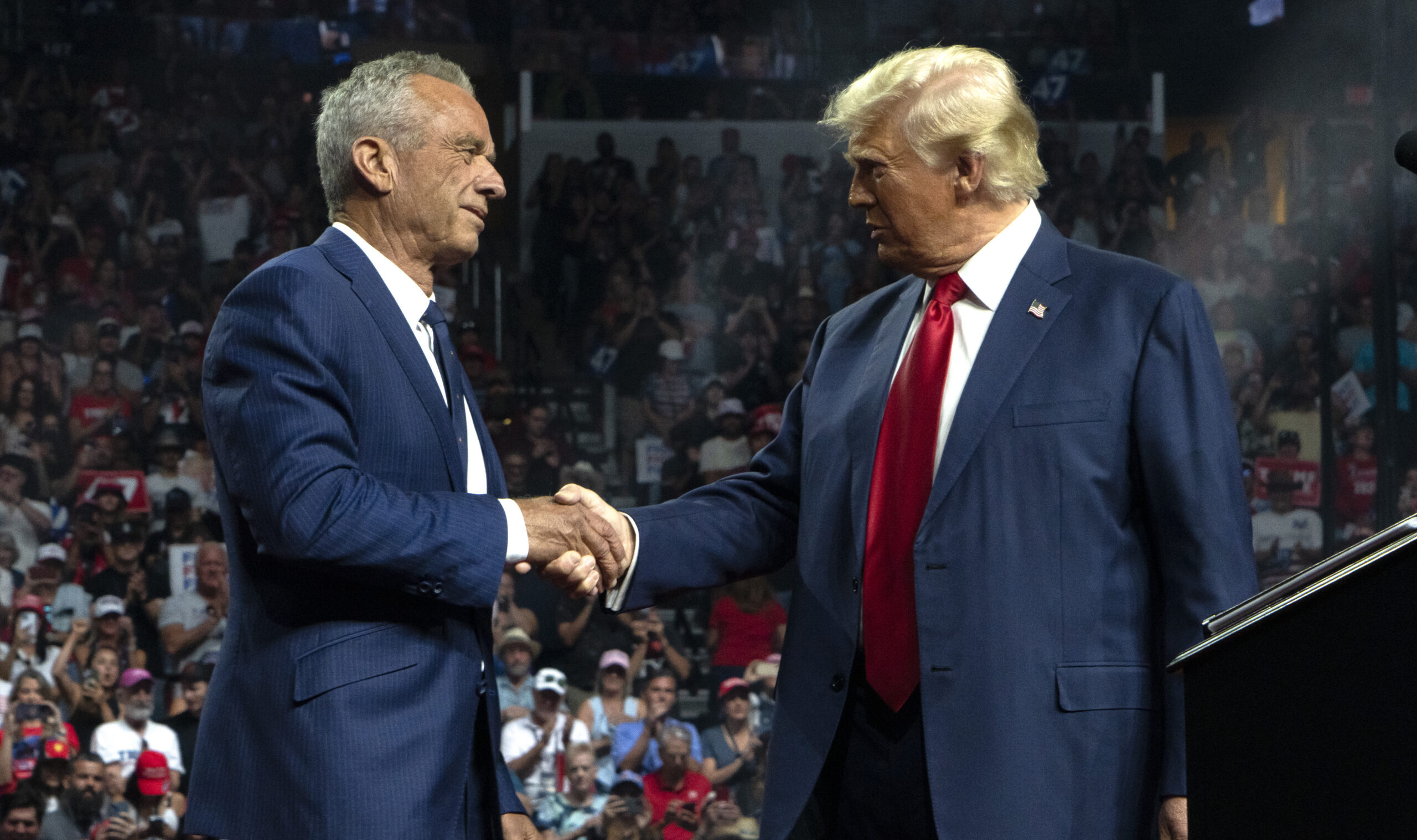RFK Jr.’s Common Good Populism
The independent presidential candidate’s recent speech provided a glimpse of a better politics.

Last Friday, in a speech in Phoenix, Arizona, the independent presidential candidate Robert F. Kennedy, Jr. suspended his campaign and endorsed Donald J. Trump.
As Kennedy noted, the problem with democracy in America in recent decades has been its absence, decrying the Democratic party’s departure from democratic norms. In defense of what amounts to America’s own “managed democracy” the party erected almost insurmountable barriers to the RFK Jr. candidacy, first by putting up onerous petition signature requirements, then by suing Kennedy’s campaign in court.
The irony of a party obsessed with Russia acting in such a manner should not be lost on anyone; indeed it is unarguable that Russia has indeed used the same methods as today’s Democratic Party. When, for example, Lyubov Sobol (an associate of anti-corruption crusader Alexei Navalny) sought to enter the Moscow City Council race in 2019, her candidacy was derailed by challenging her ballot petition signatures. This same device has frequently been used to get rid of other unwanted opposition candidates. In 2018, Pavel Grudinin, a successful businessman and populist, ran for the presidency against Vladimir Putin as a candidate of the reformed Russian communist party. When Grudinin became too threatening to the establishment and started to rise in the polls, the mass media went into action with hit pieces that quickly sidelined him.
Sound familiar?
To no one’s surprise, Kennedy’s critics were quick to pounce. Kurt Anderson dismissed Kennedy’s remarks in a vicious, self-serving piece in the Atlantic, while the American University presidential historian Allan Lichtman took to Chris Cuomo’s program and denounced Kennedy’s speech as “the most incoherent endorsement I have ever heard.”
Any honest piece about Robert F. Kennedy and his politics must come attached with certain disclaimers: Kennedy himself is an imperfect vessel for a better politics. His campaign, launched with so much promise, foundered on allegations of self-dealing and nepotism. His very real and laudable environmental record is difficult to square with Trump’s own record and the former president’s oft-stated promises to gut environmental regulations. And perhaps most importantly, Kennedy’s position on Israel's war on Palestine differs little from that of either Kamala Harris or Donald Trump—which is to say it is appalling. It is Kennedy’s unqualified endorsement of the most exaggerated and often simply false narrative about Palestine that gives us pause, to say the least. He evinces a cold indifference to Israel's actions, supported by the U.S., against the entirety of the Palestinian population.
And yet, for all that, in Kennedy’s speech we caught a glimpse of what a common good populism might look like. For one thing, unlike the current Democratic and Republican nominees, he seems to understand that the gravest threats to the country come not from beyond our borders—in the form of an alleged authoritarian axis of evil—but from within them. In his telling, “war, censorship, corruption, Big Pharma, Big Tech, Big Ag, and Big Money” are among the most pressing of America’s challenges. Kennedy is also correct as to the sad trajectory the Democratic Party has taken since the days of President John F. Kennedy. As Kennedy points out, it was a party that once
stood against authoritarianism, against censorship, and against colonialism, imperialism, and unjust wars. We were the party of labor and the working class. The Democrats were the party of government transparency and the champion of the environment. Our party was the bulwark against Big Money interests and corporate power.
Of the bankers and corporate interests, Franklin D. Roosevelt once said, “I welcome their hatred.” Today, the party of Bill Clinton and Barack Obama turns to alumni of Goldman Sachs to oversee the nation’s finances.
Subscribe Today
Get daily emails in your inbox
On the subject of Ukraine, Kennedy’s account strikes us as factual. There is a mountain of evidence that the war is indeed, as Kennedy notes, “Russia’s predictable response to the reckless neocon project of extending NATO to encircle Russia” and to force Ukraine into NATO, despite it being “the brightest of redlines” for Russia, in then-ambassador William Burns own words. Kennedy is also correct when he recalls that President Biden stated that the purpose of this war was ‘regime change’ in Moscow.
As night follows day, Kennedy’s account of the war in Ukraine and its causes will be derided as “Putin talking points,” even more so now that Kennedy has allied himself with Trump—himself falsely accused of colluding with Putin’s Russia. Such accusations will echo another case of “collusion” that took place in 1962–63 when President John F. Kennedy reached out in secret to Soviet leader Nikita Khruschev to initiate a dialogue—a dialogue that was thwarted at every turn by the leaders of the CIA and the U.S. military. As recounted by historian James Douglass, Kennedy engaged in an extensive exchange of letters and mediated (mostly by journalist Norman Cousins) conversations with his Russian counterpart, all of them oriented to overcoming mutual suspicion and ending the Cold War before it resulted in the nuclear Armageddon that the two leaders had narrowly escaped in October 1962.
In the end, a Kennedy-Trump coalition could be a reason for hope, but these hopes are tempered by our realization that Kennedy and Trump can only ever be relatively better than the alternatives. To be sure, it does not take much to rise above the level of a Kamala Harris, but we do not mean to damn them with such faint praise, as should be already obvious from the above. To say that Kennedy and Trump have their own real limitations, whether intellectual or moral, is to say no more than what Reinhold Niebuhr has noted about anyone at all that has achieved great political power. In the realm of power, the pure of heart are generally crucified or assassinated. At the very least, they are pushed aside. We have no choice but to make do with those who are imperfect.